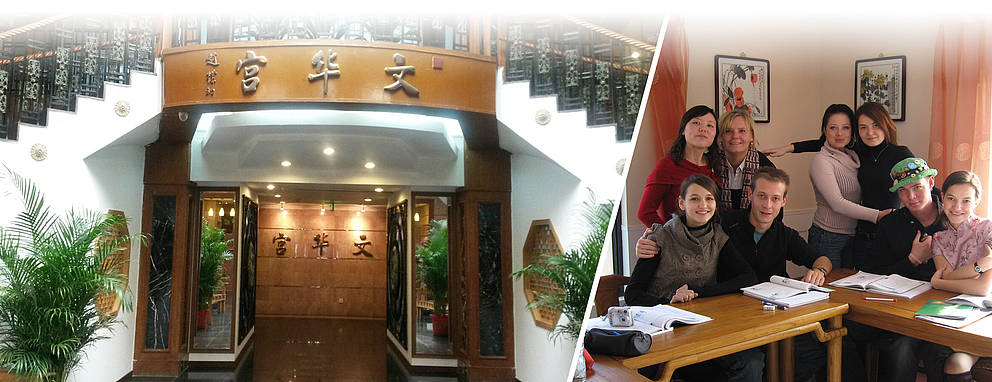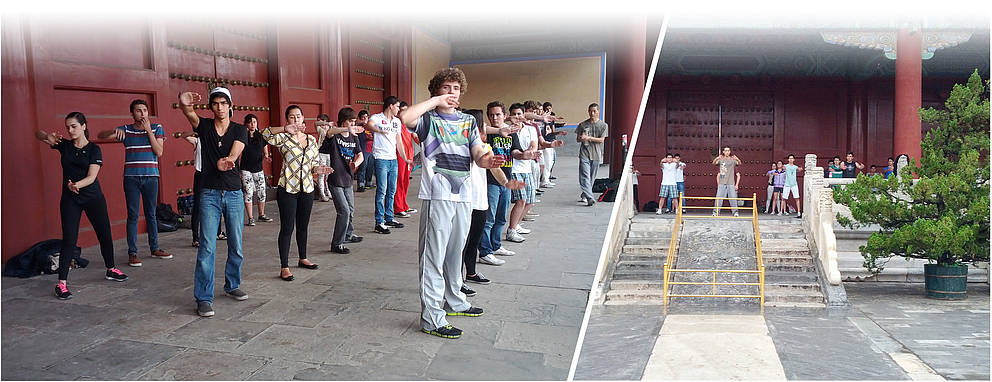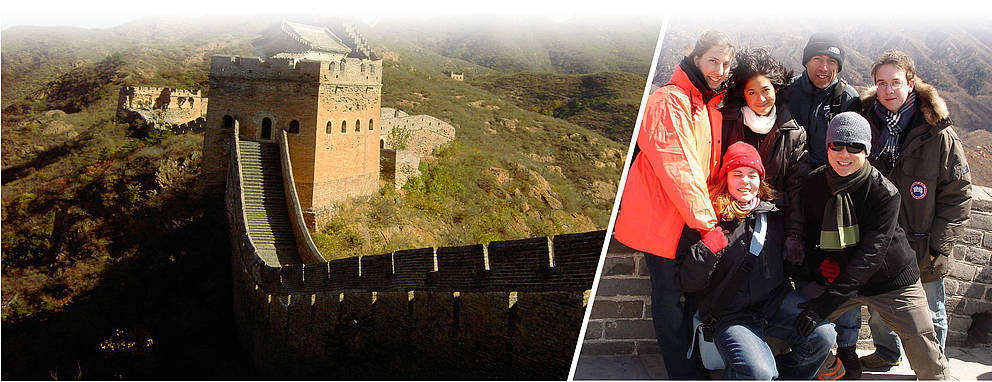Visiting Beijing
Beijing, also known as Peking, is the capital of People's Republic of China and the ancient city with a profound history and culture.
Steeped in history of imperial palaces and ancient alleyways teaming with majestic architecture and modern buildings – Beijing is a city of incredible contrasts.
Beijing is endowed with plenty of tourist attractions.More than 300 tourist sites, including six World Heritage Sites, are open to visitors throughout the year.
6 Must-See Sites:
Forbidden City
The Forbidden City was imperial palace for the Ming and Qing dynasties and now it is referred to as "Former Palace Museum"
Temple of Heaven
The Temple of Heaven is four times larger than the Forbidden City. It was where emperors of Ming and Qing dynasties went to worship heaven for good harvests.
Summer Palace
Summer Palace is China’s largest existing and best preserved imperial garden. Best-known for its beautiful natural idyllic scenery, it becomes a tourist attraction as“Number one Spectacular Scenery in China”. In Summer Palace, artificial landscape is in good harmony with nature. Completion of Summer Palace fully exhibited the technical achievements on landscape architecture in China before the rise of modern architecture on landscape.
The Great Wall(Mutianyu Section)
The Great Wall at Mutianyu is one of the best preserved sections and it is not as crowded as Badaling or Juyongguan sections. Come learn, touch, and explore the history of a Wall built over 300 years ago, yet which remains largely intact as it winds endlessly up the mountain ridgelines.
Beihai Park
Beihai Park in the city of Beijing is one of the oldest and authentic-preserved of the ancient imperial gardens in China.
There are number of beautiful places that you should not miss when touring the Beihai park.
--White Dagoba
--Qionghua Island and Taiye Lake
--Nine-Dragon Wall at Beihai Park
Jingshan Park
Jingshan Park is located right behind the Forbidden City and it gives a great bird views over the Forbidden City and Beijing in general.The park is set on an artificial hill created from the earth that was excavated when building the Forbidden City's moat nearly a 1000 years ago.
Useful Information
Money & Banking
--Banks
There are “Banks of China” in every town. Students who are in Beijing for a longer period can, if required, open a bank account and organise bank transfers from Europe to China. Money can be changed in every bank or big hotel, and sometimes in department stores by presenting your passport.
--Money
the Chinese currency is the Renminbi (RMB), also known as the Yuan or locally as Kuai. One Yuan is made up of 10 Jiao, or 100 Fen. The exchange rate for €1 is about 7.8 RMB (Oct. 2014). You don’t have to change any money in Europe before you leave, as you can do this at the airport on arrival in Beijing. Travellers cheques and cash can be changed there and in all big hotels at fixed exchange rates; some hotels charge a commission though.
--Credit cards
You can pay with international credit cards (Visa, Mastercard, Diner or American Express) in big hotels and shops. The EC card is only accepted in a few places in Asia. There is a fee of about 10 Euro every time you withdraw money from a cash machine in China with a credit card.
Transportation
--Bicycles
For students who are staying in Beijing for a longer period of time it is worth buying a bicycle (it is still the main method of transport in China). A normal, new bicycle costs about €100. At some places you can also rent bicycles by the hour.
--Buses
There are regular bus services in Beijing but they are mostly overcrowded. You buy the ticket on the bus from the conductor, to whom you will only need to tell your final destination. The tickets cost from 2 Yuan
--Taxi
There are many official taxi stands, but you can hail a taxi all over the city. The journey costs about € 1.6 for the first 3km, then about € 0.3 per km after that. If you do not speak Chinese you can get your destination written down in Chinese beforehand or simply name a well-known place near to that of your destination. Make sure that the taxi driver switches on the kilometre counter and always pretend you know the way.
--Underground
At the moment there are 17 underground lines in Beijing. The cost of one journey is around 3-10 Yuan .You can buy tickets at the counter in the station and they will then be checked on the steps as you go down to the platforms.
Food & Drinks
--Dining
Beijing offers many Western dining options from small cafes to international fast food chains where you can get reasonably priced food If you find yourself craving for pizza, pasta, or something more familiar from back home while exploring wide varieties of Chinese cuisine.
--Drinks
Tea is the most common drink in China. You can also buy soft drinks such as Coca Cola, lemonade, mineral water and beer. Tap water should not be drunk. In the hotel hot water is available for drinking.
--Tipping
It is not usual to tip in restaurants. However, it is common to give room service and porters in hotels a small tip (about €1).
Miscellaneous Information
--Climate
China is a country with a continental expanse and is characterised by huge climatic differences. Beijing has the following average day-time temperatures:
Jan Feb Mar Apr May Jun
-4.7 -2.3 4.4 13.2 20.2 24.2
Jul Aug Sep Oct Nov Dec
26.0 24.6 19.5 12.5 4.0 -2.8
--Clothing
In summer it is hot everywhere in China and often humid; when there are long periods of rain it can cool down significantly and that’s why you should also take some winter clothing to keep you warm as well. In winter, in Beijing as well as other places, it gets bitterly cold and warm winter clothing, including long underwear is necessary. Hard-wearing shoes should also be packed for the excursions! Nowadays the Chinese dress according to the Western fashion. Clothing that is too revealing, however, goes against the grain of public interest in China.
--Electricity
The electricity voltage is 220 Volts in China. Since the sockets are not standardised, we recommend you to take a multi-purpose adaptor with you.
--Opening hours
Shops in China are open every day from 10.00am to 10.00pm and the evening markets until midnight. Shops are open at the weekends, too.



